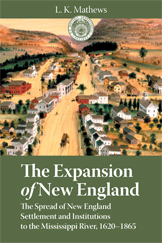 When searching for elusive New England ancestors, locating where they may have moved within New England or beyond is critical. For example, a genealogist might have traced his Michigan family back to, say, a great-great-great-grandfather in Batavia, New York, in 1820, but where was this family earlier? Continue reading Westward migration from New England
When searching for elusive New England ancestors, locating where they may have moved within New England or beyond is critical. For example, a genealogist might have traced his Michigan family back to, say, a great-great-great-grandfather in Batavia, New York, in 1820, but where was this family earlier? Continue reading Westward migration from New England